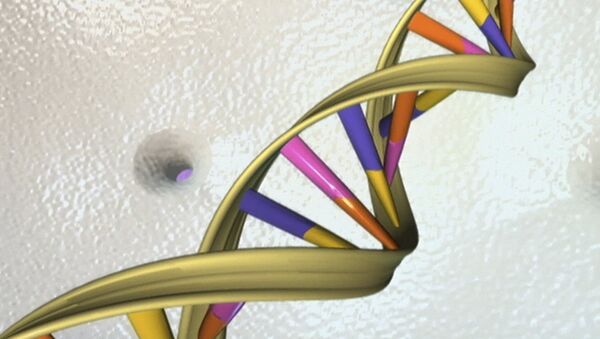On the freezing of the gene pool:
"There’re two reasons, two important fundamental mechanisms which are evolving now, that work against us, that is, towards the erosion of the human population's gene pool, at least in developed countries where there’s more or less a decent standard of living, or indeed in the vast majority of countries."
READ MORE: Surprise! ‘Some Genes Function More Actively After Death’ – Expert
"In recent years, the speed of human mutagenesis has been identified with very high precision. It’s now done by comparing the entire genomes of parents and their children. This is a way to count the number of new mutations a child has that the parents didn’t seem to have. We know that now an average newborn has about 70 new mutations that their parents didn’t have. That’s insane. We don’t know how many of them are harmful, but, roughly speaking, taking into account that 9/10 of our genome isn’t vital for survival (so-called 'junk DNA'), 9/10 of our genome goes there. But, nevertheless, there’s 1/10 left and that is, let’s say, 7 mutations that go to significant parts of the genome. Some of these mutations will be neutral (even if they come to any significant parts they won’t spoil anything) but there will also be some deleterious mutations. These are harmful because they ruin certain subsystems of our body. For example, muscle performance worsens, or the skeleton grows more slowly, renal system performance worsens; the brain is more likely to perform worse. You can estimate genome performance by the performance of the brain, as a lot of genes that our body has, are involved in the neurodevelopment and the work of the brain.
"Hundreds or thousands of genes should function smoothly and properly for us to have a brain that functions properly. So that will much likely affect cognitive abilities. There's a huge amount of mutagenesis which is not offset by corresponding selection. That means an inevitable accumulation of harmful mutations for generations. Our genetic pool will degrade very fast, apparently because of the relaxation of selection."
"The relaxation of selection is only one issue. It’s a debatable how much harm this problem is doing to us. Perhaps, while the population is growing rapidly, it’s not that harmful as there’s almost no selection. Everybody survives including good genotypes. Ill genotypes also survive but the population is growing. We seem not to be losing anything. But when, at some point, the population evens out, if there are those genotypes that survive accidentally, regardless of their quality, then the degeneration will become faster than during the ultra-fast population growth."
"It’s believed that intelligence and education aren’t inherited characters and instead depend on the environment, upbringing, culture or social stratum. However, geneticists have proven that such characteristics as level of education and cognition, that is — any measure of intelligence, according to any related test [reveals that] genes have a great impact on any of these characteristics, there’s high heritability. A person’s level of education is about 40-50% dependent on their genes, it also 50-60% dependent on the environment and chance. Perhaps, the more just the society is, and the less wealth and social inequalities prevail, the more genes contribute to such things. Then, education and intelligence have a high level of heritability and the adverse selection applies to them. It’s all proven; there are numbers and diagrams. People genetically predisposed to grow up intelligent and educated not only have fewer children, they have babies a year or two later. But that’s enough to create a huge selection pressure against genes [that can be positively correlated with] intelligence and education."
"So, from the point of view of genetics, humanity isn’t doing well at the moment."
On the differences between Russian and French people.
"Russians are a huge patchwork. That is, genetically, the Chukchi and, for example, the Karelians are at opposite poles among non-African people. The Russian population of central Russia and the French population don’t differ much. There are some differences in the frequency of occurrence of some neutral polymorphisms. If we take the entire genomes of 100 Russians and 100 French and process them via certain programs, and count all the polymorphisms, they should at least divide into two clusters. So we’ll be able to say that one part is one thing and the other part – another. Although the majority of these differences are neutral and don’t have any impact on any characteristics that are important, they still can be used to identify relationships. But generally it's a European population. So the differences between Russian and French people are much weaker than, let’s say, the differences between the Russians and the Afro-Americans or the Russians and the Yakuts. But no program can distinguish Russians from Ukrainians or Belarusians."
The views and opinions expressed in this article are solely those of the speaker and do not necessarily reflect those of Sputnik.



